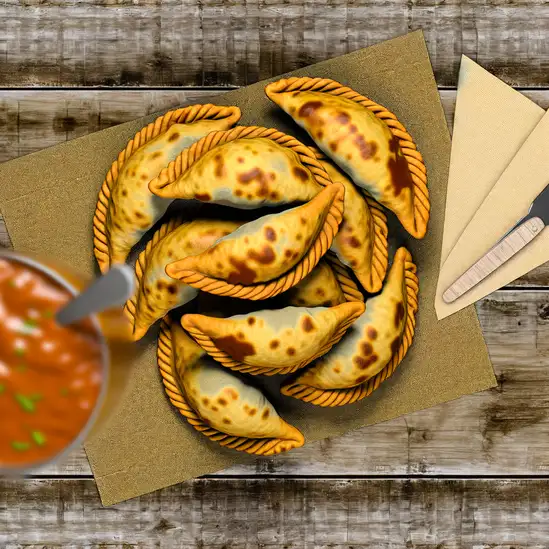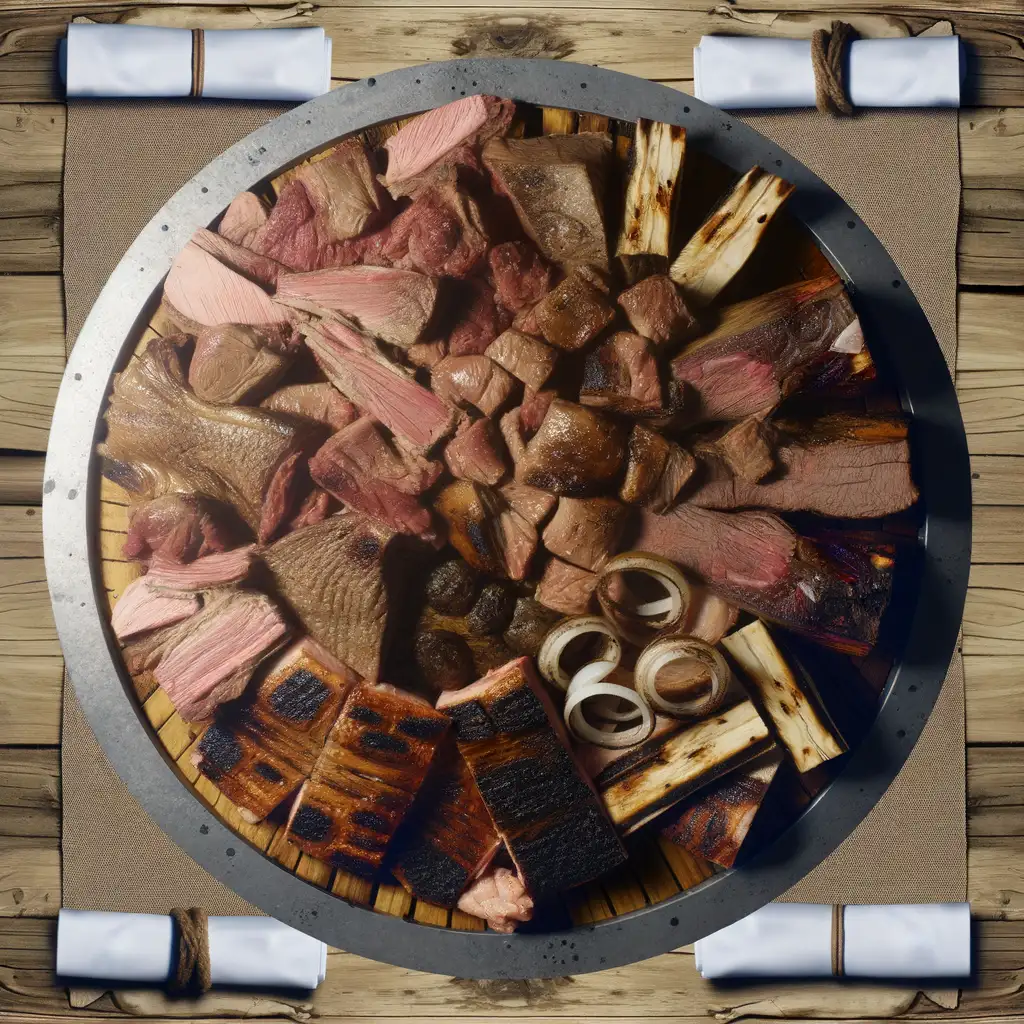



If you ever find yourself wandering through Argentina,Neuquén is one of those places that sneaks up on you with its quiet charm and unexpected warmth. The city hums with a relaxed energy,where the Andes peek shyly in the distance and the wind carries the fresh scent of the nearby Limay River. Walking through its streets,you’ll notice a blend of modern life and earthy roots—colorful murals splash across walls,telling stories of the land and its people,while cozy cafés invite you in with the rich aroma of freshly brewed mate and strong coffee. What really makes Neuquén stand out is its genuine,down-to-earth vibe. Locals are friendly without being overbearing,always ready to share a smile or a recommendation for the best local empanadas or a spot to catch the sunset. The city pulses quietly with cultural pride—there’s a lively arts scene,weekend markets filled with handcrafted goods,and music that drifts through the air,mixing traditional folk tunes with contemporary beats. As the sun dips low,the sky turns a soft pink,and the cool breeze carries the faint smell of grilled meats from nearby parrillas. Sitting by the riverbank,you can almost taste the freedom and openness of Patagonia itself. Neuquén isn’t flashy or loud,but it’s a place that stays with you—a warm,inviting pause in your journey that feels like a conversation with an old friend.
The information on this page is currently being reviewed by Tripkliq and should be used as a guide only
Eng word: Hello
Eng pronunciation: OH-lah
Local language: Hola
Eng word: Goodbye
Eng pronunciation: ah-DYOS
Local language: Adiós
Eng word: Thank you
Eng pronunciation: GRAH-syahs
Local language: Gracias
Eng word: How much
Eng pronunciation: KWAN-toh KWEH-stah
Local language: ¿Cuánto cuesta?
Eng word: Toilet
Eng pronunciation: BAH-nyoh
Local language: Baño
Eng word: Help me
Eng pronunciation: ah-YOO-dah-meh
Local language: Ayúdame
Eng word: Yes
Eng pronunciation: SEE
Local language: Sí
Eng word: No
Eng pronunciation: NO
Local language: No
Eng word: Excuse me
Eng pronunciation: pehr-DOHN
Local language: Perdón
Neuquén was officially founded on September 12,1904. The city was established as the capital of the Neuquén Province, marking the beginning of its development as a key administrative and cultural center in Patagonia.
The arrival of the Southern Railway in 1902 played a crucial role in Neuquén's growth. It connected the city to other parts of Argentina, boosting trade, transportation, and the movement of people.
Neuquén is located at the confluence of the Limay and Neuquén Rivers, which form the Río Negro. This strategic location has made the city a vital hub for agriculture, irrigation, and water-based activities.
Neuquén is part of the emerging wine region of Patagonia. The area's unique climate and soil conditions have made it an ideal location for producing high-quality wines, attracting wine enthusiasts from around the world.
Neuquén has become a cultural hub in Patagonia, hosting numerous museums, theaters, and art galleries. The Gregorio Álvarez Museum, for example, showcases the region's rich history and indigenous heritage.
The Vaca Muerta shale formation, located near Neuquén, is one of the largest reserves of unconventional oil and gas in the world. This discovery has brought economic growth and technological advancements to the region.
Neuquén is famous for its paleontological discoveries. The region is home to some of the world's most significant dinosaur fossils, including species like Argentinosaurus, one of the largest dinosaurs ever discovered.
The María Auxiliadora Cathedral, located in the heart of Neuquén, is a beautiful architectural landmark. Built in the early 20th century, it serves as a symbol of the city's spiritual and cultural heritage.
Parque Norte is one of Neuquén's most beloved green spaces. Developed to provide recreational opportunities for residents and visitors, it offers stunning views of the surrounding rivers and landscapes.
In Neuquén, the most common Power Adaptor is Type C, Type I.



Savory pastries filled with a variety of ingredients such as beef, chicken, or cheese, baked or fried, and commonly enjoyed as a snack or appetizer.

A traditional Argentine barbecue featuring various cuts of beef, often cooked on a grill or open fire, served with chimichurri sauce.

A hearty stew made with corn, beans, potatoes, and various meats, typically enjoyed during national holidays and celebrations.

A sweet caramel-like spread made from slowly heating sweetened milk, commonly used in desserts and pastries.

A grilled cheese dish made from provolone cheese, seasoned with oregano and chili flakes, served as an appetizer.

If you ever find yourself craving a place where nature’s grandeur meets cozy,small-town charm,San Carlos de Bariloche is where you want to be. Imagine waking up to the crisp,pine-scented air,with the shimmering waters of Lake Nahuel Huapi stretching out before you,framed by snow-capped Andes peaks. The vibe here is relaxed but alive—locals and travelers alike gather in rustic cafés,their laughter mingling with the clinking of coffee cups and the rich aroma of freshly brewed Argentine espresso.
Walking through Bariloche’s streets feels like stepping into a storybook. Wooden chalets with colorful shutters line the avenues,and the scent of chocolate wafts from every corner,a nod to the city’s famous artisanal chocolatiers. You’ll hear the soft crunch of snow underfoot in winter or the gentle rustle of leaves in summer,while the distant call of birds adds a natural soundtrack to your explorations. The city pulses with a blend of European alpine influences and Patagonian spirit,creating a unique cultural tapestry that’s both warm and inviting.
What really makes Bariloche unforgettable is how it invites you to slow down and savor the moment. Whether you’re hiking through ancient forests,savoring a plate of fresh trout by the lake,or simply watching the sunset paint the mountains in shades of pink and gold,there’s a deep sense of peace here. It’s a place that stays with you long after you leave,whispering stories of wild beauty and heartfelt hospitality.
If you ever find yourself craving a place where the wildness of nature meets the warmth of a small coastal town,Puerto Madryn in Argentina should be on your radar. The moment you arrive,there’s this fresh,salty breeze that carries the promise of adventure and calm all at once. The town itself feels laid-back but alive,with colorful buildings lining the waterfront and locals who greet you with genuine smiles and a relaxed pace that invites you to slow down and soak it all in.
Walking along the shore,you’ll hear the distant calls of sea lions and the rhythmic crashing of waves against the rugged cliffs. The air smells faintly of the ocean mixed with the earthy scent of Patagonian scrubland nearby. It’s a sensory blend that feels both invigorating and grounding. Don’t miss the chance to taste the local seafood—fresh,tender,and often paired with a glass of crisp Argentine white wine that perfectly complements the coastal flavors.
What really makes Puerto Madryn stand out is its connection to the natural world. It’s the gateway to the Valdés Peninsula,where you can witness southern right whales breaching just offshore or watch penguins waddle along the beach. The town’s character is shaped by this deep respect for the environment,and you can feel it in the way people talk about their home—with pride and a touch of awe. Visiting here isn’t just about seeing a place; it’s about feeling a rare harmony between land,sea,and community.
Imagine stepping into a place where the wildness of nature meets the warmth of a close-knit community—that’s Ushuaia for you. Nestled at the very tip of South America,this city feels like the edge of the world,with snow-capped mountains standing guard over the deep blue waters of the Beagle Channel. The air is crisp and fresh,carrying hints of pine and salty sea spray,and when you walk along the harbor,you can almost hear the distant call of sea lions mingling with the chatter of locals and travelers alike.
Ushuaia’s charm isn’t just in its dramatic landscapes but in its spirit. The streets hum with a quiet energy—cozy cafés filled with the rich aroma of freshly brewed coffee,small artisan shops showcasing handmade woolen goods,and restaurants where you can savor Patagonian lamb or freshly caught king crab,each bite bursting with the rugged flavors of the region. There’s a ruggedness here,sure,but also a surprising softness in the smiles of the people who’ve carved out a life in this remote corner.
What really stays with you is the sense of adventure that pulses through the city. Whether you’re gearing up for a trek through Tierra del Fuego National Park,hopping on a boat to spot penguins,or simply watching the sunset paint the sky in fiery hues,Ushuaia invites you to slow down and soak it all in. It’s a place that feels alive,raw,and deeply welcoming—like a story you’re eager to be part of.
If you ever find yourself dreaming of a place where raw nature meets cozy,small-town charm,El Calafate is that spot. Nestled on the edge of the vast Patagonian steppe,this town has a quiet energy that feels both adventurous and welcoming. The air carries a crispness that wakes you up with every breath,tinged with the faint scent of pine and earth. When you stroll through its streets,you’ll hear the soft murmur of travelers swapping stories over steaming cups of mate or rich Argentine coffee,while the distant wind whispers tales from the nearby glaciers.
What really makes El Calafate unforgettable is its connection to the natural world. The town feels like a gateway to something immense and ancient—especially when you catch your first glimpse of the Perito Moreno Glacier. Imagine standing before a colossal wall of ice,its brilliant blues shimmering under the sun,cracking and groaning as chunks calve into the turquoise waters below. It’s humbling and exhilarating all at once. Back in town,the local culture is warm and unpretentious,with friendly faces eager to share their love for the land,the sheep farming heritage,and the hearty Patagonian lamb dishes that taste like a celebration of the region itself.
Evenings in El Calafate have their own magic. The sky stretches wide and clear,perfect for stargazing,while the cozy restaurants invite you to linger over Malbec and homemade desserts. It’s a place that invites you to slow down,breathe deeply,and soak in the wild beauty that feels both timeless and alive. Trust me,once you’ve been here,you’ll carry a piece of Patagonia’s spirit with you long after you leave.
Buenos Aires feels like a city that’s alive in every sense — vibrant,passionate,and endlessly inviting. From the moment you step onto its bustling streets,you’re wrapped in a mix of old-world charm and modern energy. The air carries the scent of freshly baked medialunas mingling with the faint,smoky aroma of asado grilling nearby. You’ll hear the rhythmic clatter of tango dancers’ heels on cobblestones,blending with the lively chatter spilling out of cafés and the distant hum of street musicians playing soulful melodies.
Walking through neighborhoods like San Telmo or Palermo,you’ll notice the colorful murals that tell stories of the city’s rich history and rebellious spirit. The architecture is a fascinating patchwork — elegant French-style buildings stand shoulder to shoulder with vibrant street art and quirky boutiques. There’s a warmth in the way porteños (locals) greet each other,a genuine friendliness that makes you feel like you’re part of the city’s ongoing story.
And then there’s the food — oh,the food! Juicy,perfectly grilled steaks paired with Malbec that tastes like it was made just for you. Empanadas bursting with flavor,and dulce de leche desserts that melt in your mouth. Buenos Aires isn’t just a place to visit; it’s a place to savor,to dance,to lose yourself in the rhythm of life. Trust me,once you’ve wandered its streets and soaked in its spirit,you’ll carry a piece of Buenos Aires with you long after you leave.
If you ever find yourself dreaming of a place where the sea breeze carries the scent of fresh pine and salty ocean spray,Puerto Montt is that kind of spot. It’s a lively coastal city in southern Chile that feels like a warm welcome wrapped in misty mornings and vibrant markets. Walking along the waterfront,you’ll hear the chatter of fishermen unloading their catch,the clinking of boats bobbing gently,and the distant call of seabirds. The air is crisp,with a hint of wood smoke from nearby homes,making you feel instantly connected to nature and community.
Puerto Montt pulses with a unique blend of Chilean culture and German influence,visible in its architecture and hearty food. The Mercado Angelmó is a must-visit—imagine stalls bursting with colorful seafood,the aroma of freshly grilled fish mingling with the tang of citrus and herbs. Grab a plate of curanto,a traditional dish cooked in a pit with shellfish,meat,and potatoes,and savor the rich,smoky flavors that tell stories of the land and sea.
Beyond the city,the surrounding landscapes are jaw-dropping—towering volcanoes,lush forests,and shimmering lakes invite you to explore. But what really stays with you is the city’s rhythm:a blend of bustling markets,friendly locals eager to share their stories,and quiet moments watching the sunset paint the sky in shades of pink and orange over the Pacific. Puerto Montt isn’t just a place to visit; it’s a place that feels like a heartfelt embrace from southern Chile.
Scammers may install skimming devices on ATMs to steal card information. Use ATMs in secure locations, such as inside banks, and cover the keypad when entering your PIN.
Tourists may be offered fake or non-existent accommodations online. Always book through trusted platforms and read reviews before making payments.
Tourists may receive counterfeit bills as change, especially in smaller denominations. Be cautious and familiarize yourself with the local currency to spot fake notes.
Some taxi drivers may take advantage of tourists by not using the meter, taking unnecessarily long routes, or charging inflated flat rates. Always ensure the meter is running or agree on a price beforehand.
Unlicensed individuals may pose as tour guides, offering subpar or fake tours at inflated prices. Always book tours through reputable agencies or your accommodation.
Shops in tourist-heavy areas may charge significantly higher prices for souvenirs. Shop around and compare prices to avoid overpaying.
In crowded areas like bus terminals, markets, or tourist attractions, pickpockets may target distracted tourists. Keep your belongings secure and avoid carrying valuables in easily accessible pockets.
Some street vendors may sell overpriced or low-quality goods to tourists, claiming they are authentic or handmade. Always compare prices and inspect items carefully.
The possession, sale, and use of recreational drugs are illegal in Argentina, including in Neuquén. While small amounts of marijuana for personal use have been decriminalized in certain cases, this is subject to judicial interpretation and does not mean it is legal. Tourists should avoid carrying or using any illegal substances to avoid legal issues. Medical cannabis is legal but requires proper authorization and documentation. Drug trafficking is a serious crime and carries severe penalties.
In Neuquén, as in the rest of Argentina, smoking is regulated under national and provincial laws. Smoking is prohibited in enclosed public spaces, workplaces, and on public transportation. This includes restaurants, bars, and shopping centers. Designated smoking areas may be available in some places, but they must comply with strict ventilation requirements. Tourists should also be mindful of local no-smoking signs and avoid smoking in areas where it is explicitly prohibited.
Vaping is less regulated than smoking in Argentina, but it is generally treated similarly in public spaces. In Neuquén, it is advisable to avoid vaping in enclosed public spaces, workplaces, and public transportation unless explicitly allowed. Some establishments may have their own policies regarding vaping, so it is best to ask for permission before using e-cigarettes in public or private venues.
What are other people saying about Neuquén?
Recent Social posts about Neuquén
There is nothing to show you for now.